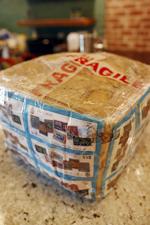No business founder will tell you it’s easy. It’s stressful, it’s challenging, but more than anything, it’s an enormous risk — one that, despite its hardships, plays a crucial role in driving economic progress.
Critical to that progress is the American regulatory system. Ethical and scientifically based regulation is the cornerstone for clean air and water, reliable transportation, a strong economy and, most relevantly, safe food products. This system, when operating within its boundaries and serving its intended purpose, serves representative government and the rule of law. Regrettably, my recent experience with the Virginia Department of Health was not an instance of scientifically based and legally well-founded regulation. Rather, it revealed something that should not happen in Virginia: bureaucratic overreach and predatory abuse of the permitting process.

As the founder of KavaClub, I did my homework, researching the safety and legality of kava and kratom teas. I am no stranger to heavily regulated businesses; my first venture was WealthForge, a company I founded from my dorm room in the highly regulated financial services space. I knew that opening the first kava bar in Virginia would require similar work, so I hired lawyers and did extensive research. First, I found that kava and kratom are legal in Virginia. Second, and most importantly, I found that, served in their natural form, they are perfectly safe and healthy.
The legality of kava and kratom is abundantly clear. The state legislature, the duly elected lawmakers on behalf of the people of Virginia, has repeatedly declined to make kava illegal or limit its sale, despite considering numerous bills that proposed just that. On kratom, the Virginia legislature has explicitly recognized that kratom was legal by passing Senate Bill 1108, allowing sale only to those 21 and older with a disclaimer about effects, which was signed into law by Gov. Glenn Youngkin. You don’t need a law degree to determine this, although I hired many lawyers just to be safe: Kava and kratom are legal in Virginia.
Next, I researched the safety of natural kava and kratom. You don’t need to be a food scientist to recognize their safety; you need commonsense. Kava is a root grown on the islands of Fiji, which for centuries has been ground and steeped in water for tea. Kratom leaves have also long been brewed into tea and consumed for their relaxing effects; both products have been carefully studied and long-enjoyed, without a finding of ill effects when prepared using traditional methods.

In a 2016 safety review of kava, the World Health Organization stated that its customary use poses little safety concern. In fact, traditionally prepared kava is already used in over 285 kava bars in the U.S., and evidence supporting its safety is readily available. Additionally, a 2020 Johns Hopkins survey of 2,700 users found that the natural herb kratom, in its traditionally brewed form, may have therapeutic effects and a relatively low potential for abuse or harm.
Simply put, any concern around the use of kava has no connection to the safety of these products as KavaClub brews them, with integrity, in their natural form. Yet VDH refused to permit KavaClub to open solely because it proposed to sell traditional kava and kratom teas.
Here’s the kicker: Kava and kratom are legal and widely available. Visit any vape shop or gas station, and you can find kava and kratom readily available for legal purchase and consumption.
Why, then, has the VDH stopped my business from opening? Why, then, has it caused us to incur hundreds of thousands of dollars of losses and cost Virginia dozens of good-paying jobs? Seemingly, it’s because we followed the rules: We did the research, acted transparently and went through the proper permitting process; we performed our due diligence. KavaClub alone has been singled out as unable to sell kava or kratom.

You could, right now, open a vape shop and sell unregulated substances with questionable health impacts. But try to open a natural tea shop providing Richmond with an alcohol-free social alternative, and you’ll be unreasonably accused of using “unsafe food additives.” The VDH has now rejected our menu twice. It refuses to acknowledge the legality of these roots and leaves, and for “legal reasoning,” relies solely on the finding that a tea is not a “beverage,” but a “food additive” because the tea is added to water.
The VDH is wildly incorrect from a commonsense and legal standpoint, and it’s also imposing a bureaucratic tax on people like me who obey the law. Whether or not you want to drink kava, this is a loss for Virginia and democracy.







